All About Historical Fiction Books
That Transports You to Another Era
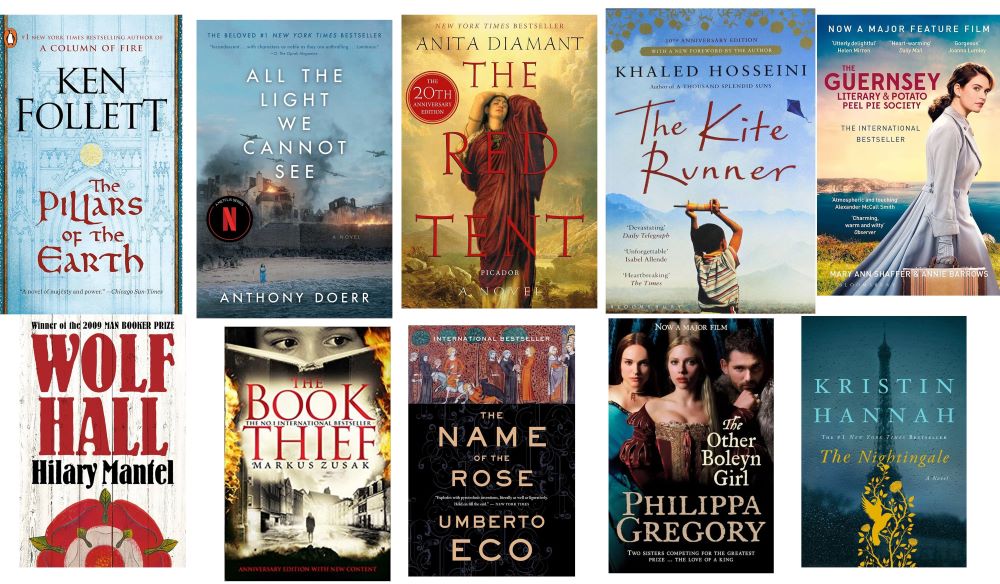
Journey Through Time with Historical Fiction Books
The genre of historical fiction books is distinctive, interesting, educational and insightful.
It originated in the 19th century which started as a protest against the romanticized and idealized history of the past.
Historical fiction has grown to feature a combination of detailed historical research and deft storytelling.
It has offered writers a potent medium for exploring past events and social changes, from the civilizations of antiquity to contemporary history.
Historical fiction is a genre that beautifully marries the real with the imagined.
It is defined as a type of fiction that is set in the past, often incorporating real-life events, people, or periods to give an authentic backdrop to a narrative that may or may not be entirely factual.
This blend allows authors to craft engaging stories and dialogues while staying true to historical contexts.
Unlike pure history books or biographies, historical fiction books fill in the gaps with creativity, adding flesh to the bones of historical facts.
One key characteristic of historical fiction is the meticulous research that goes into it.
Authors spend a significant amount of time ensuring the accuracy of the settings, dialects, and cultural nuances.
This is where historical fiction books stand apart from standard genres like romance or science fiction, which often take liberties with facts and settings without striving for historical accuracy.
The difference between historical fiction and alternate history or fantasy is crucial to note.
Historical fiction books typically stick to established historical facts and weaves a story through them.
Fantasy, on the other hand, often incorporates supernatural elements that are absent in historical fiction.
The balance between historical accuracy and creative liberties is a tightrope that authors need to walk carefully.
Too much historical detail can bog down the story, making it read like a textbook, whereas too much fiction can distort factual history.
That's why the best historical fiction books are those that strike a perfect balance, making you feel like you are indeed in another time while keeping you rooted in real-world events.
When was the last time you got lost in a book and found yourself in another era, feeling the tensions of historical events or the romance of bygone worlds?
Historical fiction has a magical way of dragging us into different times, providing snapshots of history through the eyes of compelling characters.
Historical fiction is more than just a genre; it's an experience that combines storytelling with education, filling the gaps in our historical knowledge with narrative richness and emotional depth.
Whether you're an armchair historian or someone looking to break free from the present moment, this article may add a few cents for you.
Reasons to Read Historical Fiction Books
Historical fiction books have provided gateways into other times, places, and cultures, providing the ability to understand the past from unique perspectives.
They spur the reader's imagination, further develop our empathetic skills, and widen our understanding of specific historical times.
Moreover, these novels often explore complex societal issues that hold relevance today, prompting readers into a contemplative state that drives introspective thinking.
Finally, they serve as a potent reminder of the impermanence of all things and offer a comforting perspective of our place in the long thread of human history.
What Makes it A Bestselling Historical Fiction Book
What makes a historical fiction book a bestseller?
Often, it's a combination of gripping storytelling, deep historical insights, and relatable characters.
Bestseller status is typically achieved through high sales figures, critical acclaim, and strong word-of-mouth recommendations.
Popularity and buzz can also be fueled by factors such as book awards, celebrity endorsements, and adaptations into movies or TV shows.
10 Historical Fictions Books Briefs
Now let us explore ten famous historical fiction books that promise to transport you to different eras and locales, enriching your mind and stoking your imagination.
Here, we'll dive into the heart of what makes historical fiction so enticing, listing down some popular titles that should be on your reading list.
Consider this your ticket to time travel—all within the comfort of your reading corner sofa at home.
Let’s journey through time together, one book historical fiction book brief at a time.
1. "The Pillars of the Earth" by Ken Follett
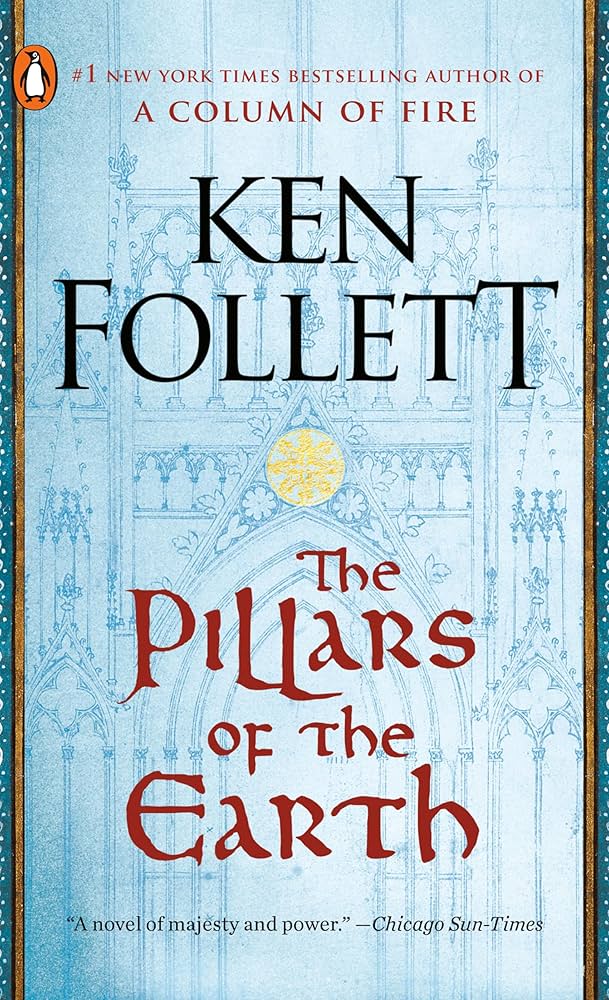
Set in 12th century England, "The Pillars of the Earth" follows the construction of a magnificent cathedral in the fictional town of Kingsbridge.
The story revolves around three main characters: Tom, a skilled mason; Aliena, a noblewoman; and Philip, a monk.
As their lives intertwine, they face numerous challenges, including political upheaval, religious strife, and personal struggles.
Follett's meticulous research and vivid descriptions bring the Middle Ages to life, making readers feel as though they are walking the streets of Kingsbridge alongside the characters.
With over 26 million copies sold worldwide, "The Pillars of the Earth" is a testament to the enduring power of historical fiction.
2. "The Book Thief" by Markus Zusak
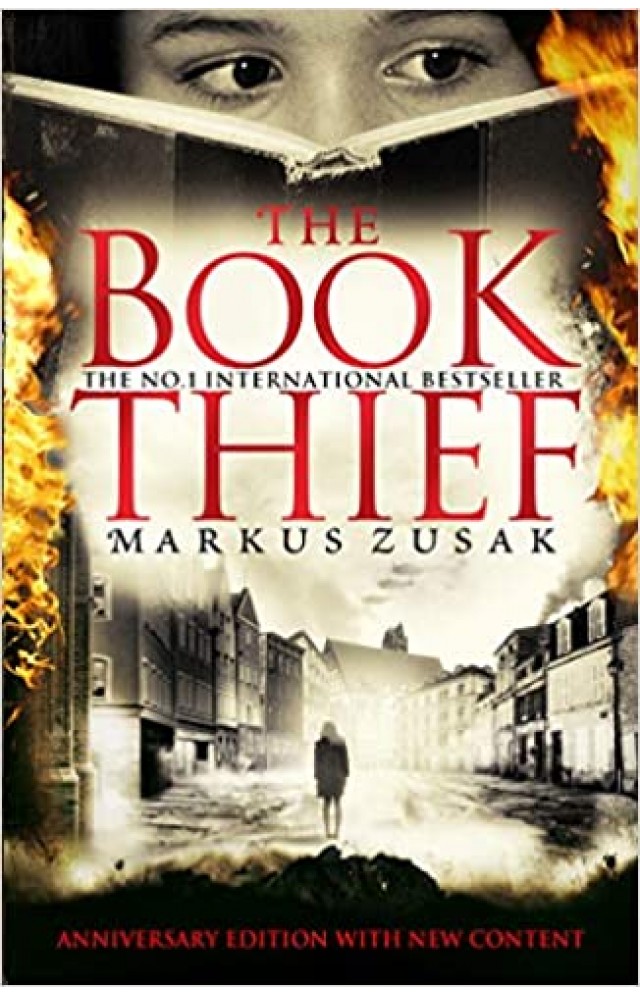
"The Book Thief" is set in Nazi Germany and tells the story of Liesel, a young girl who survives by stealing books.
Narrated by Death itself, the novel follows Liesel as she navigates the horrors of World War II, finding solace in the power of words and the kindness of those around her, including her foster parents and a Jewish man hiding in their basement.
Zusak's unique narrative style and insightful observations on the human condition have made "The Book Thief" a modern classic, with over 16 million copies sold worldwide.
3. "The Other Boleyn Girl" by Philippa Gregory
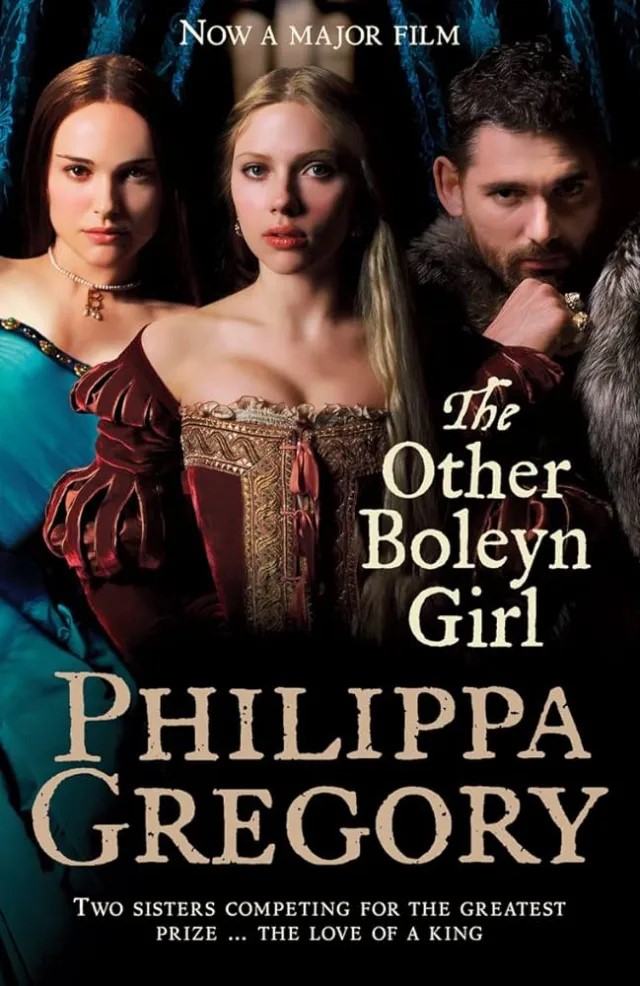
"The Other Boleyn Girl" is a fictionalized account of the life of Mary Boleyn, sister of the infamous Anne Boleyn.
Set in the court of King Henry VIII, the novel follows Mary as she catches the eye of the king and becomes his mistress, only to be cast aside in favor of her ambitious sister.
Gregory's portrayal of the Boleyn family's rise and fall is both captivating and heartbreaking, offering a fresh perspective on one of history's most fascinating periods.
With over 10 million copies sold worldwide, "The Other Boleyn Girl" has become a beloved classic of the historical fiction genre.
4. "The Name of the Rose" by Umberto Eco
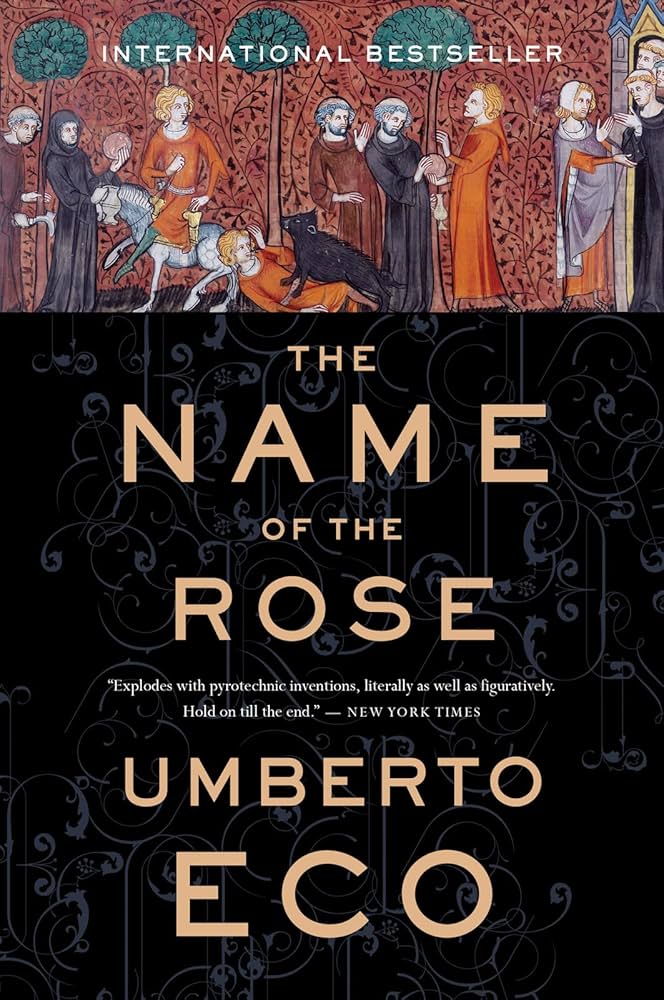
Set in a 14th-century Italian monastery, "The Name of the Rose" follows Brother William of Baskerville as he investigates a series of mysterious deaths.
As William delves deeper into the secrets of the abbey, he uncovers a web of political intrigue, religious conflict, and intellectual debate.
Eco's novel is a masterful blend of historical detail, philosophical inquiry, and detective fiction, offering a thought-provoking exploration of the nature of truth and the power of knowledge.
"The Name of the Rose" has sold over 50 million copies worldwide and has been adapted into a successful film starring Sean Connery.
5. "The Kite Runner" by Khaled Hosseini
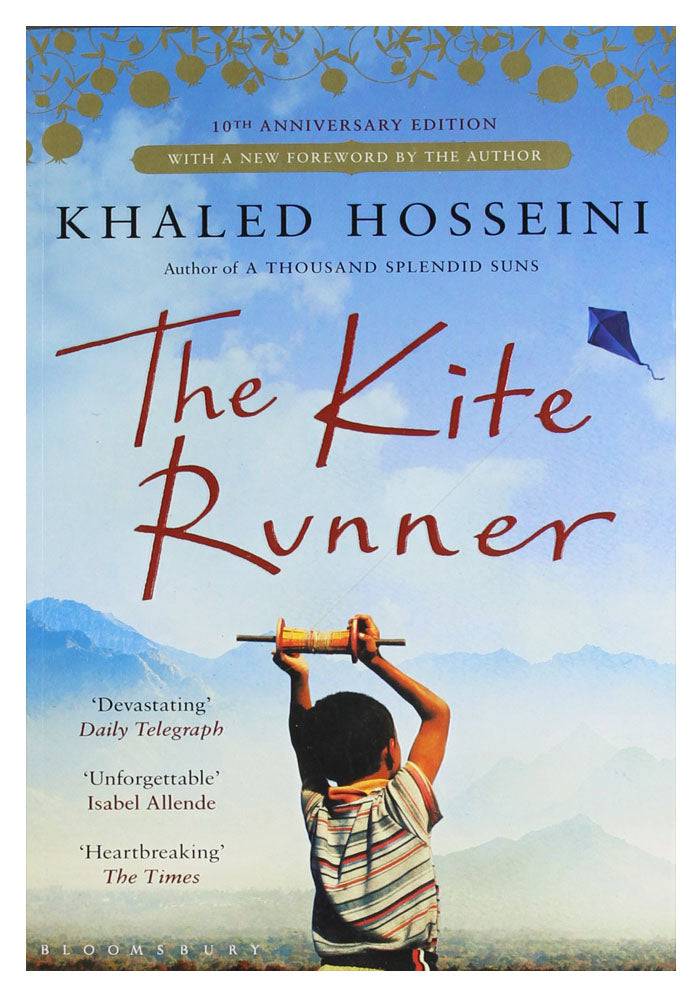
"The Kite Runner" tells the story of Amir, a young boy from Kabul, and his friendship with Hassan, the son of his father's servant.
Set against the backdrop of Afghanistan's tumultuous history, from the fall of the monarchy to the rise of the Taliban, the novel explores themes of loyalty, betrayal, and redemption.
Hosseini's vivid descriptions and emotionally charged prose bring the characters and their world to life, making "The Kite Runner" a powerful and unforgettable read.
With over 31 million copies sold worldwide, the novel has become a modern classic and a testament to the enduring power of storytelling.
6. "Wolf Hall" by Hilary Mantel
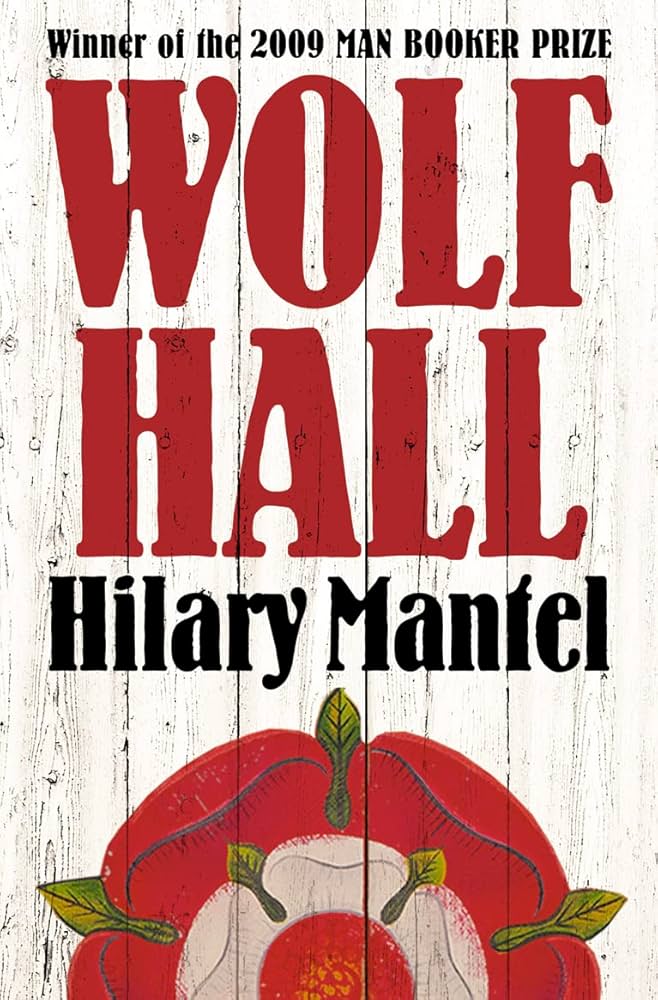
"Wolf Hall" is a fictionalized account of the rise of Thomas Cromwell, a key figure in the court of King Henry VIII.
The novel follows Cromwell as he navigates the treacherous waters of Tudor politics, using his wit, intelligence, and ruthless ambition to climb the ranks of power.
Mantel's prose is rich and immersive, bringing the sights, sounds, and smells of 16th-century England to vivid life.
"Wolf Hall" has won numerous awards, including the Man Booker Prize, and has sold over 5 million copies worldwide.
7. "The Red Tent" by Anita Diamant
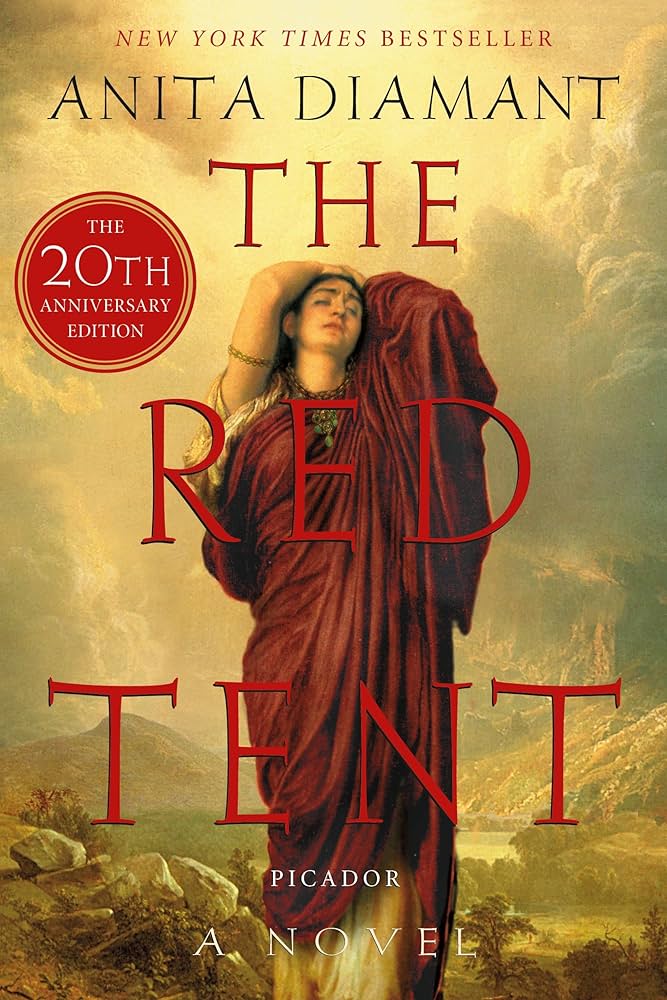
"The Red Tent" is a retelling of the biblical story of Dinah, daughter of Jacob and Leah.
The novel imagines Dinah's life and the lives of the women around her, offering a feminist perspective on a patriarchal society.
Diamant's lush, poetic prose brings the ancient world to life, immersing readers in the daily rituals, beliefs, and struggles of women in biblical times.
"The Red Tent" has sold over 3 million copies worldwide and has become a beloved classic of the historical fiction genre.
8. "The Nightingale" by Kristin Hannah
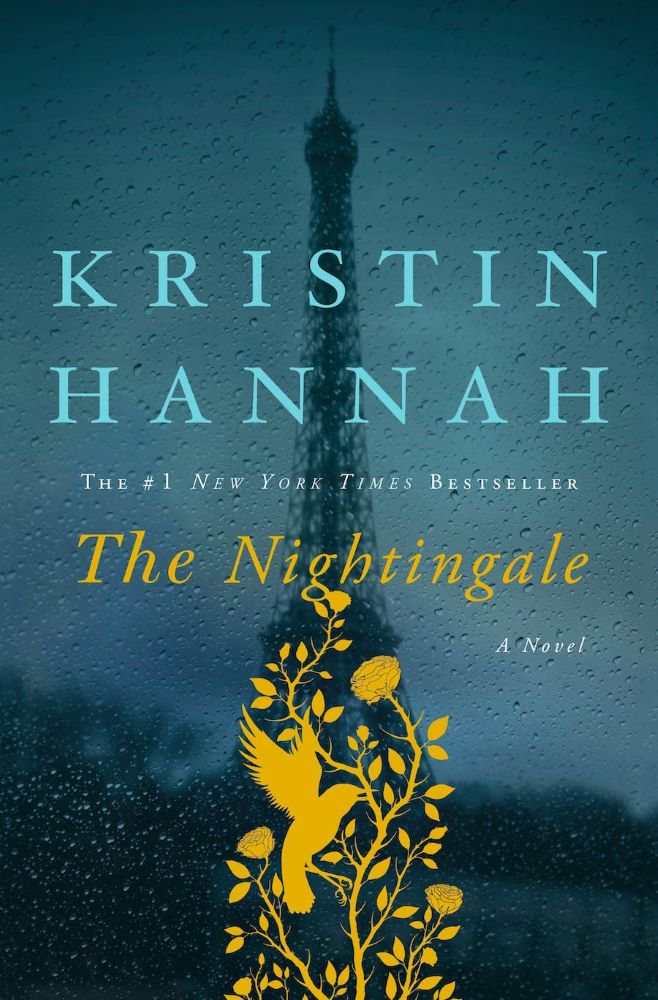
"The Nightingale" tells the story of two sisters, Vianne and Isabelle, living in France during World War II.
As the Nazis occupy their country, the sisters must navigate the dangers and challenges of wartime, each in their own way.
Vianne must protect her family and home, while Isabelle joins the Resistance and risks her life to save others.
Hannah's emotionally charged prose brings the characters and their struggles to vivid life, making "The Nightingale" a powerful and unforgettable read.
The novel has sold over 4.5 million copies worldwide and has been adapted into a successful film.
9. "The Guernsey Literary and Potato Peel Pie
Society" by Mary Ann Shaffer and Annie Barrows
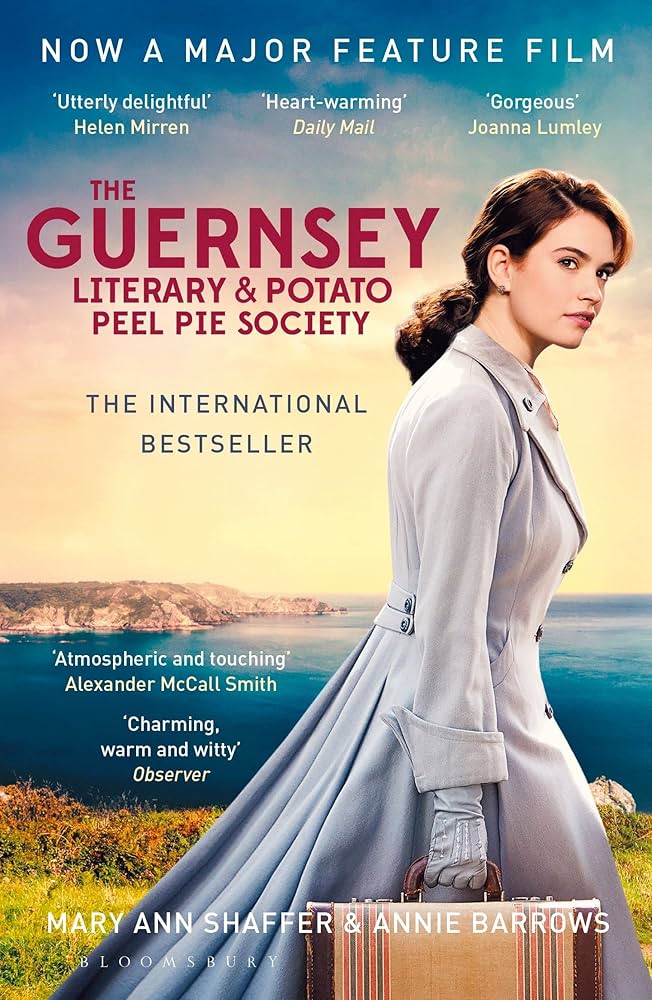
Set in the aftermath of World War II, "The Guernsey Literary and Potato Peel Pie Society" follows writer Juliet Ashton as she becomes entangled with the members of a book club on the island of Guernsey.
Through letters and personal accounts, Juliet learns about the island's experiences during the German occupation and the resilience and courage of its inhabitants.
The novel is a charming and heartwarming tale of friendship, love, and the power of literature to bring people together.
"The Guernsey Literary and Potato Peel Pie Society" has sold over 7.5 million copies worldwide and has been adapted into a successful film.
10. "All the Light We Cannot See" by Anthony
Doerr
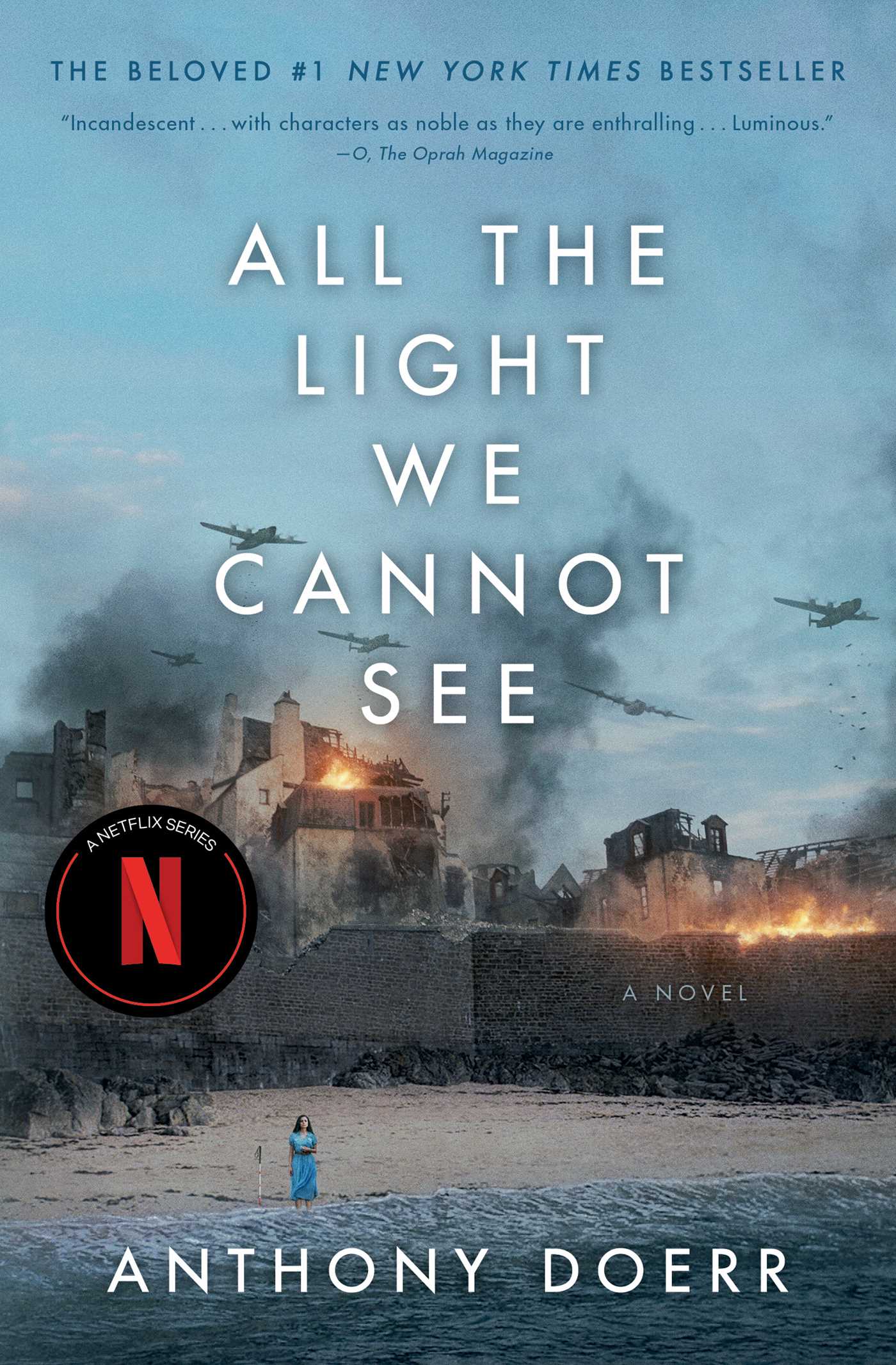
"All the Light We Cannot See" tells the story of two young people, Marie-Laure, a blind French girl, and Werner, a German orphan, whose paths collide in occupied France during World War II.
As Marie-Laure and Werner navigate the dangers and challenges of wartime, they each find solace in the power of radio, music, and the kindness of strangers.
Doerr's lyrical prose and intricate plotting make "All the Light We Cannot See" a mesmerizing and unforgettable read. The novel has sold over 15 million copies worldwide and has won numerous awards, including the Pulitzer Prize for Fiction.
Reading 10 Selected Historical Fiction Books
These 10 historical fiction books offer a glimpse into the rich and varied tapestry of human history, from ancient civilizations to more recent decades.
Whenever you find convenient time, you may get hold of these selected historical fiction books to get to grips about what historical fiction book makes you feel as a first hand experience.
Through compelling characters, vivid descriptions, and emotionally charged prose, these novels bring the past to life, offering readers a chance to experience the joys, sorrows, and triumphs of another time and place.
Whether you are a fan of the historical fiction books or simply looking for a captivating read, these novels are sure to transport you to another world and leave you with a deeper appreciation for the power of storytelling.
These novels incorporate actual historical events or traditional narratives into their plots yet infuse them with unique characters and individualized stories. The art of historical fiction is an exploration of culture, customs, and historical context embodied in an entertaining format.
Some Other Historical Fiction Books to Mention
Some other exemplary historical fiction works deserve mention here too.
True masterpieces such as Leo Tolstoy's 'War and Peace,' and 'I, Claudius' by Robert Graves feature a perfect fusion of history and narrative invention.
Margaret Mitchell's 'Gone With The Wind,' and 'Outlander' series by Diana Gabaldon.
‘The Nightingale’ by Kristin Hannah
This tale is set in France during World War II. It follows two sisters navigating through the atrocities of war, their courage, and the scars left behind.
‘Memoirs of a Geisha’ by Arthur Golden
Taking us to pre- and post-World War II Japan, this novel unveils the hidden world of geishas through the eyes of a young girl sold into this profession.
‘Beloved’ by Toni Morrison
Set after the American Civil War, this novel explores the haunting legacy of slavery through the life of a mother haunted by the ghost of her deceased daughter.
‘The Help’ by Kathryn Stockett
Taking place in the 1960s Southern United States, this book explores racial divides through the perspectives of African American maids and the women they serve.
These books are not just about periods and dates; they delve deep into the human experience, making history come alive through their narratives.
Historical Fiction Book Authors and Their Masterworks
Each successful historical fiction book author has their own approach to bringing the past to life.
Let's take a deep dive into a few master authors and their body of work:
Leo Tolstoy: Known for his extraordinary, detailed descriptions of life during the Napoleonic era in 'War and Peace.'
Diana Gabaldon: Gabaldon blends history and romance seamlessly in her popular 'Outlander' series, taking readers back to 18th-century Scotland.
Ken Follett: Follett arrests readers’ attention with his 'Century Trilogy,' offering an eye-opening plunge into the World Wars and the Cold War.
Award-winning Historical Fiction Books
One way to recognize excellence in historical fiction is through awards.
Major literary awards often bring deserved attention to outstanding works.
Here’s an overview of some notable awards and books that have garnered such accolades:
Pulitzer Prize for Fiction
One of the most prestigious awards, given to distinguished works by American authors. Anthony Doerr’s 'All the Light We Cannot See' won this award in 2015.
His meticulous depiction of World War II from two unique perspectives won widespread acclaim.
Man Booker Prize
This prize is awarded for the best original novel written in English and published in the UK.
Hilary Mantel received the Man Booker Prize twice for 'Wolf Hall' and 'Bring Up the Bodies', both offering an intimate look into Tudor England through the eyes of Thomas Cromwell.
The Walter Scott Prize
Dedicated specifically to historical fiction, this prize honors books written in English that include a historical backdrop.
Example winners include Andrea Levy's 'The Long Song', set during the final years of slavery in Jamaica.
Costas Book Awards
These highlight excellent books by authors based in the UK and Ireland.
The Essex Serpent' by Sarah Perry, set in the late Victorian era, won the 2016 Costa Book of the Year award for its rich narrative and atmospheric setting.
Winning such awards not only brings recognition to the authors but also broadens their readership, encouraging more people to explore the historical periods these books depict.
Awards highlight the exemplary combination of research, narrative skill, and emotional impact.
They validate the immense effort authors put into crafting stories that educate as well as entertain.
If you’re looking to delve into historical fiction, starting with award-winning books is a safe bet.
These works represent the best that the genre has to offer, ensuring a captivating and enlightening reading experience.
What We Learn From Reading Historical Fiction Books
Reading historical fiction books goes beyond mere entertainment.
It provides significant educational value and nurtures a deeper understanding of the past.
Here’s what we gain from indulging in these narratives:
Educational Value and Insights
Historical fiction is a gateway to learning about different eras, cultures, and significant events.
While history books provide a factual framework, historical fiction adds a layer of narrative that makes these facts relatable and memorable.
For instance, through 'The Book Thief', readers gain insights into the daily struggles and emotional toll of life in Nazi Germany, making the abstract numbers and dates of history textbooks come alive.
Historical Empathy and Understanding
One of the most powerful aspects of historical fiction is its ability to foster empathy.
By diving into the lives of characters from different times, readers can understand the emotions, motivations, and challenges faced by people in the past.
Anthony Doerr’s 'All the Light We Cannot See' allows readers to experience the impact of World War II on individuals, building a bridge of empathy between the past and present.
Incorporating Historical Fiction into Learning
Teachers and educators have found historical fiction to be a valuable tool in the classroom.
These books can be used to complement standard history curriculums, providing a more rounded and engaging understanding of historical events.
For example, pairing the study of the American Civil War with 'Beloved' by Toni Morrison offers students a profound insight into the personal and societal ramifications of slavery.
Critical Thinking
Interestingly, historical fiction also encourages critical thinking.
Readers often find themselves differentiating between historical facts and the author’s creative additions, honing their analytical skills.
It’s no wonder that many educators integrate these stories into their lesson plans, using them as springboards for discussions and deeper dives into history.
Overall, through historical fiction, we don’t just learn about the past; we feel it and understand it on a human level.
It bridges the gap between then and now, making history a lived experience rather than a distant memory. And it helps us to understand our present better.
We develop holistic wisdom of this world through the ages old human history when we were not there.
It actually helps us open our minds and get out of the box and see things in a long form perspective as well to understand about its fragility and immortality of life lived at all times.
Conclusion: Continuing Your Journey With Historical Fiction
Books
We have traveled through different eras and met a variety of characters who brought history alive in riveting and emotional ways.
From war-torn Europe to the intricacies of royal courts and beyond, historical fiction books offer an enriching blend of fact and narrative that leaves a lasting impact.
If you’re new to the genre or a seasoned reader, there's always something new to explore and learn.
For those eager to continue their journey, there are plenty of avenues to explore historical fiction.
Dive deeper into the historical fiction books of acclaimed authors, explore additional award-winning titles, or find niche historical periods that pique your interest.
Libraries, bookstores, and online platforms are treasure troves waiting to be discovered.
In addition, in present times to know and research about the old human history has even become easier through the help of internet.
You can find abundance of information sitting at your home.
I believe internet is a real boon and blessing for the writers who intend to work in any genre.
Consider joining a book club focused on historical fiction or participating in online forums and communities where discussions delve deeper into historical contexts and author insights.
This not only broadens your understanding but also connects you with fellow enthusiasts.
In conclusion, historical fiction books are more than just a genre; it’s a portal to different times, a treasure chest of knowledge, and a bridge of empathy and understanding.
Embrace it, explore it, and let these historical humanistic stories illuminate the past in ways that resonate with our present.
To learn about you may also visit MasterClass on Historical Fiction
Happy reading, and may your journey through time be enriching!
Read Selected Book Summaries at IdeasBeat